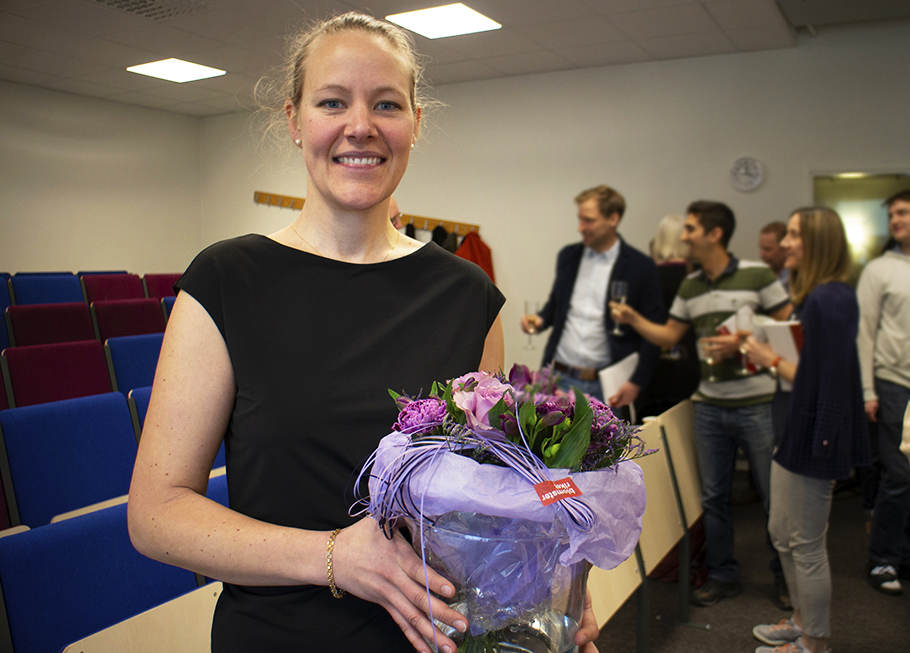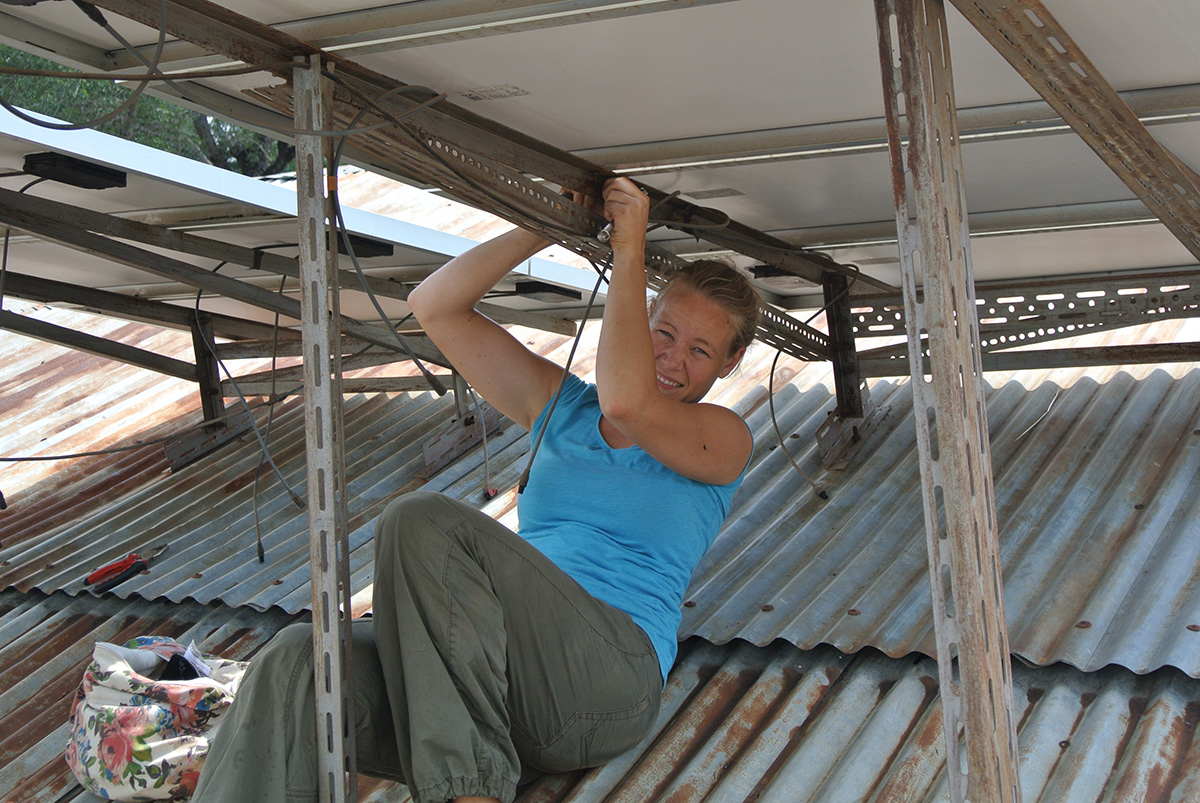 There is lots being done in attempts to provide the world's population with access to electricity. Yet challenges exist because the traditional national electricity systems cannot be built at the rate and extent desired. As a result of developments in the areas of solar energy and battery production in recent decades, it is becoming more possible than ever to construct reliable and economically advantageous small-scale electricity systems.
There is lots being done in attempts to provide the world's population with access to electricity. Yet challenges exist because the traditional national electricity systems cannot be built at the rate and extent desired. As a result of developments in the areas of solar energy and battery production in recent decades, it is becoming more possible than ever to construct reliable and economically advantageous small-scale electricity systems.
Caroline Bastholm is a doctoral student in engineering physics and studied small-scale electricity systems for places in the world where there is no access to electricity from a central national electricity network. Her research focused on so-called decentralised PV-Diesel hybrid systems that use solar energy in combination with diesel generators so as to generate electricity that can be stored in batteries and distributed to, for example, schools and hospitals.
"In my studies, I concentrated on how social and technical aspects affect each other. In some cases, these fall in line with each other, and we can achieve positive societal development thanks partly to technology. In other cases, there is less harmony between the technology and the social structures. In spite of good intentions and modern technical equipment, we are unable to achieve the results we had hoped for," explains Caroline Bastholm.
Among those cases that have been less successful, there are examples of systems that have broken down too soon, often as a result of social factors.
"Often it's batteries that have lost their chargeability early on, but behind these apparently technical problems, there are often failings in the organisational structures for operation, direction for energy use, and system maintenance. This is why it is of utmost importance that systems are designed, implemented, and studied from a cross-disciplinary perspective, where technical and social aspects are given joint consideration. My research shows the importance of this integration and comes with ways to facilitate the work," states Caroline Bastholm.
The studies were conducted in Tanzania. Caroline Bastholm travelled there on four occasions to carry out observations and to conduct measurements of the electricity system, and to interview those working with the systems. Back in Sweden, she complemented the collected data by developing simulations of the electricity system.
Her licentiate dissertation comprises three parts. The methods and parameters that she raises in these can readily be used so that social and technical aspects come more into line with each other in studies or in the implementation of other electrical systems the world over. In such a way, research can help contribute to an electricity system that to a greater degree can be sustainable in the long-term and allow for positive societal development.
Caroline Bastholm is also the general secretary of the organisation "Ingenjörer utan gränser" (Engineers without Borders). On April 4, she successfully defended her licentiate dissertation "Micro-Grids Supplied by Renewable Energy - Improving Technical and Social Feasibility".
Link to Caroline Bastholm's dissertation: “Micro-Grids Supplied by Renewable Energy – Improving Technical and Social Feasibility”.

For more information, contact:
Caroline Bastholm
cne@du.se